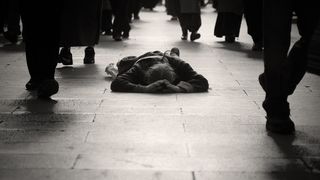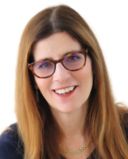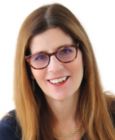Child Development
The Perils of Apathy
What lessons have we learned from the Holocaust?
Posted January 29, 2020 Reviewed by Gary Drevitch

This week we remember the 75th anniversary of the liberation of Auschwitz. It is personal for me since my mother and father were survivors of Auschwitz (and Dachau and Buchenwald). My mother’s concentration camp number was 47021 and my father’s was 184879. The numbers tattooed on their arms were an indelible image of the inhumanity of the Holocaust.
Every family member of my parents (except for a few cousins) was murdered by the Nazis. All that remained of our family tree were a few yellowed photographs tucked away in a shoebox that my father kept inside the drawer of his bedside table.
My parents had decided not to frighten me with their recollections about the death camps. Not that the past was a forbidden topic with my parents; they spoke truthfully about their experiences in, but only when I asked. They were determined to make my childhood carefree and happy, and to keep the past at bay.
I was born on a farm in Vineland, New Jersey. My parents met and married in Germany after the Holocaust and later immigrated to New York City, and then to Vineland, where they bought a chicken farm business (and later a business in New York). Vineland was home to many Holocaust survivors including the late chairman of the U.S. Holocaust Museum. It was a tight knit community of about 1000 survivors. The families socialized together, building strong friendships and community.
Perhaps, because of their shared past, and their differences from the surrounding community—they spoke with foreign accents and most had numbers tattooed on their arms—they developed close bonds. My childhood in Vineland was an idyllic, quintessential American childhood.
Still, though my parents tried to keep their Holocaust past far away, I was curious about it. I cannot pinpoint exactly when I learned about the Holocaust. I would learn about the past haphazardly, shocked by each new discovery. I wanted to hear more about the suffering they endured, but as usual, my mother pushed aside the past for what was, for her, the far more important task of making sure it didn’t intrude on my childhood. Still, try as she did, the past was always there—an abyss that cried out for an answer.
I never stopped asking my parents questions: Who put those numbers on your arms? How did my aunts, uncles, and grandparents die? Did the guards ever hurt you? How did the Germans know you were Jewish?
Findings about the atrocities greatly affected my young mind. What inquisitive child could simply accept the Nazi assault on humanity? What child could avoid wondering how those bad people could be fairly punished for the atrocities they committed?
Settling accounts, I thought then, was a straightforward procedure. I hated all Germans and I wanted to see them suffer and punished for the atrocities they committed. “Don’t you hate the Germans?” I asked my mother one day. I thought that I was probably being too direct, but I couldn’t help myself.
She looked at me intently and spoke with a serious voice. I could sense what she was about to say was important and she wanted me to pay close attention to her message. “I do not hate the Germans. Hate is like a cancer. It will poison and spread in you. And you will become that what you hate. The Nazis did not win because I kept my humanity. They could not and cannot take it away from me.”
As my mother spoke these words, I did not fully understand her view. How could she not hate “them”?
Several months before my mother’s death, someone from the Shoah Foundation asked her, “What would you like to tell the world about the pain you suffered in Auschwitz?” My mother paused for a moment and then said: “I want the world to know that no one ever again should suffer like I did.”
My mother’s answer surprised me. The pain on her face was always palpable. She lived with the ghosts of the Holocaust everyday. Still, despite her pain, or maybe because of it, she focused on her intentions not to hate the ‘enemy’ and to ameliorate other’s sufferings. It was her final statement about Auschwitz. And it was an act of compassion.
A few years ago, when Pope Francis made his historic visit to Auschwitz to pay tribute to the more than 1 million people who died there, he had no speech prepared. Instead, the pope said he came to pray alone asking the Lord for the “grace to cry.” And in a 2010 book Pope Francis (then Jorge Mario Bergoglio) wrote with Rabbi Abraham Skorka, the two men discussed the Holocaust. Though the question "Where was God?" is an important theological and human question, the pope said, "Where was man?" is an even bigger question.
Similarly, Holocaust survivor and Nobel Laureate Elie Weisel said during a speech at the White House that the indifference of people to other’s sufferings is the greatest danger. While in Auschwitz he and those he was with felt abandoned and forgotten. They believed that the world could not know of their suffering or else some action would surely have been taken.
This week on 75th anniversary of the liberation of Auschwitz, as I think about my Holocaust inheritance, I know it is not just my inheritance; it belongs to all of humanity.
Pope Francis recently called on all Christians and Jews to build a "common memory" of the Holocaust, saying, "It is our responsibility to hand it on in a dignified way to young generations."
As I watch what’s unfolding in the world, I wonder what lessons we have learned from our common inheritance and what dignified memory we will hand to the next generation. Have we become less apathetic to the suffering of others?
I hope so.
Copyright © 2020 Mona Sue Weissmark All Rights Reserved
My next book, THE SCIENCE OF DIVERSITY, to be released by Oxford University Press in June 2020 can be pre-ordered now! Learn more & pre-order here:
Click here to order at Amazon.com
Click here to order at Oxford University Press | Academic
References
Weissmark, M. (forthcoming 2020). The Science of Diversity. Oxford University Press, USA.
My next book, THE SCIENCE OF DIVERSITY, to be released by Oxford University Press in June 2020 can be pre-ordered now! Learn more & pre-order here:
Pre-Order from Oxford University Press | Academic
Weissmark, M. (2004). Justice Matters: Legacies of the Holocaust and World War II. Oxford University Press, USA.
Weissmark, M. & Giacomo, D. (1998). Doing Psychotherapy Effectively. University of Chicago Press, USA.




